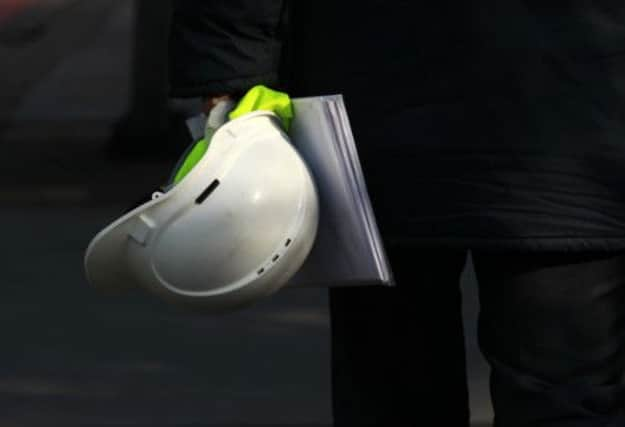Engineering can be bridge to great career


However, there exists an equally interesting if unsung modern apprentice route for young people, namely for specialists such as civil engineering technicians.
Given the vast amount of infrastructure work in Scotland over the next five to ten years there are great career prospects to be pursued in this field.
Advertisement
Hide AdAdvertisement
Hide AdProjects such as the Aberdeen Western Peripheral Route and the dualling of the A9 will provide a continuity of work and training for years to come.
Indeed, the north-east of Scotland has a skills shortage so we already have a requirement to fill these places, which can only be done by training our school leavers or importing skilled labour from Europe.
A civil engineering technician provides technical support to civil engineers on a range of infrastructure projects. They can work on the design, construction, commissioning, maintenance or even demolition of bridges, roads, railways, airports, dams, docks, tunnels, sewers and waterworks, hospitals, offices, factories, sports stadia, power stations and offshore structures.
The job acts as a link between engineers, the management team and the operatives on a construction site with civil engineering technicians there to make sure that everything runs smoothly, to check the quality of work control and to report back on progress.
There is great variety in the role with no such thing as a typical day. Within the remit a technician may be asked to help carry out initial surveys of the site, send rock and soil samples for lab analysis or assist with the design of the project, using computer aided design.
He or she may also spend time working out equipment and labour costs and requirements and timescales for project completion, negotiating with suppliers, monitoring the ongoing costs of a project, writing reports and supervising work in progress.
Skills
A technician apprenticeship combines real employment, college learning and work experience to ensure the right balance of technical skills and practical skills.
As employees, apprentices earn a wage and work alongside experienced staff to gain job-specific skills.
Advertisement
Hide AdAdvertisement
Hide AdOff site, on day-release or block-release basis, apprentices receive training to work towards nationally recognised vocational and academic qualifications.
Once a technician apprentice has finished training, there are many further career progression opportunities. They can apply to become a technician member of the Institute of Civil Engineers (ICE) and then register with the Engineering Council as an engineering technician (EngTech) to help them make those next steps up the ladder.
At CITB-ConstructionSkills we have strong support from Skills Development Scotland (SDS) in funding this route and in August we will look to careers advisers and school guidance teachers to highlight the opportunities available.
In particular, SDS has allocated some 70 per cent of funding of technicians to the 16-19 age group, which will help impact on youth employment.
Links
We have an education and training challenge with strong links with industry, schools and colleges required to highlight construction career opportunities.
Employers who wish to recruit technician apprentices will be looking for candidates with good Standard Grades and ideally Highers in subjects such as English, maths and a science.
With exam results due out soon, this is the perfect time for young people across Scotland to be aware of opportunities such as these and others across the industry.
Our dedicated careers team is able to visit schools and run seminars for teachers, to explain careers available in the construction industry and to highlight the technician route in particular.
Advertisement
Hide AdAdvertisement
Hide AdCITB-ConstructionSkills also hopes to see companies in the Central Belt recognise the potential of taking on technicians – the north of Scotland is leading in this area.
We also call on both contractors and consultants to advise of vacancies so that we can match with prospective candidates.
Overall, we will continue to focus energies on highlighting opportunities in the industry for young people, encouraging employers and contractors to do the same and further increasing our presence in schools and colleges. Large projects need to offer work experience and school visits to ensure that a structure is in place to deliver “right skills, right place, right time” for the youth of Scotland.
• Graeme Ogilvy is Scotland director for CITB-ConstructionSkills www.citb.co.uk